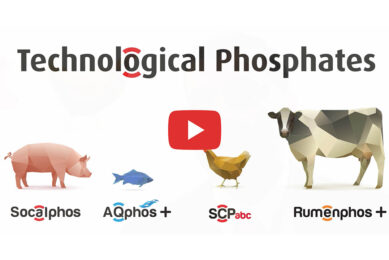Bacterial toxins: An activated mineral can help

US company Amlan International announces that its activated mineral product to adsorb toxins, has now also been approved for use as an intestinal adsorbent for the control of disease-causing bacterial toxins from Argentina’s Ministry of Agriculture.
The product is already approved as an adsorbent in 31 different countries including many in Latin America (Bolivia, Ecuador, Brazil, Columbia, etc.) and Asia-Pacific (Vietnam, Taiwan, Philippines, Malaysia, etc.). This new regulatory approval in Argentina was granted after a review of the product’s* extensive efficacy data, resulting in its status as the first product worldwide recognised to control bacterial toxins produced by pathogenic bacteria such as Clostridium perfringens, E. coli and Salmonella sp.
Move away from growth promoters, great economic loss from toxins
“As the livestock industry continues to move away from using antibiotics as growth promoters, producers are beginning to realise the economic impact of toxins produced by pathogenic bacteria. Bacterial toxins cause notably greater economic loss to the global livestock industry than do mycotoxins and our product is positioned to offer an added level of proven protection for animals challenged with enteric diseases”, explains Dr Ron Cravens, president, Amlan International.
Video: Watch how the product works in the intestinal environment of animals
Adsorb a broad range of toxins
The product is a thermally activated mineral that chemically adsorbs bacterial and fungal toxins thereby reducing the effects of enteric diseases. The mineral is selectively mined and processed under proprietary conditions that enable it to adsorb a broad range of disease causing toxins that negatively impact growth and development in livestock. The finely ground, thermally activated particles ensure that adsorption is quick to rapidly reduce the bioavailability of toxins before they can be absorbed by the animal. The result is a decrease in the clinical effects of enteric disease and improved animal performance.
Also interesting: Can Calibrin-Z improve performance in ZEA fed pigs?
More than 70 clinical studies and recent work from the USDA, demonstrate the product’s ability to adsorb bacterial toxins thereby reducing the effects of enteric diseases—a major source of economic loss in the livestock industry.
The regulatory approval for the product is for poultry, swine, and cattle.
* Calibrin-Z











